7 Quick Takes: Consumerism and its Discontents
Devra Torres | Nov 24, 2012 | 6 cmts

* * * * *
---1---
As my philosophy professor, the late lamented Dr. William Marra, used to say,
“Money is happiness in the abstract.”
He was right: if we dedicate Black Friday to commerce,

it’s not so much because we want this particular HDTV or that particular vegan leather handbag: it’s because money seems to bestow the power to be happy in whatever way we might turn out to desire. It represents an open-ended guarantee that, should a wish arise, we’ll be able to satisfy it. Money means control and protection from the unexpected. At least, maybe that’s the illusion lurking in the back of our minds, and the real reason money has such a hold on us. A clearer view of Who’s really in control is the cure.

---2---
I think consumerism run amok is closely related to safety consciousness run amok.
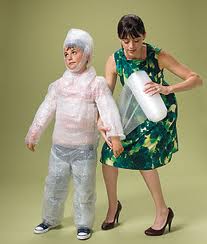
The most sublime and festive greeting we can come up with these days is,
‘Have a safe holiday!”
I’m all for safety. Really! As the mother of a little girl
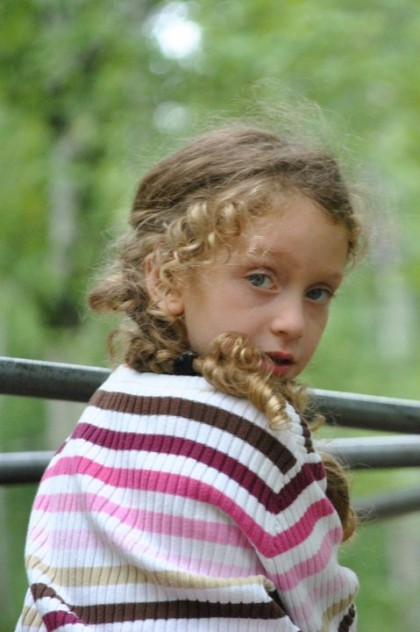
who once fractured her forearm while playing quietly with blocks in the living room, I’m a fervent fan of safety. But safety, security, health—these, like money, are conditions for certain kinds of happiness and pleasure—not ends in themselves. This is exceptionally easy to forget.
---3---
I can’t prove this, but it certainly rings true. In this book
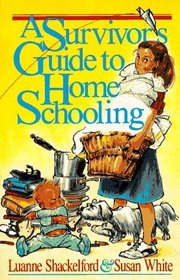
Shackelford and White say studies have shown that customer enthusiasm for any product reaches its zenith at the moment of purchase.
Yes, it’s downhill from there.
Because even if you know perfectly well that that material goods don’t bring true happiness, but only pleasure, it’s very, very easy to overestimate just how much pleasure they’re likely to bestow. That’s even if they include batteries, require no maintenance, and don’t get broken or “borrowed.” There’s a reason why Scripture says
Lay not up to yourselves treasures on earth: where the rust and moth consume, and where thieves break through and steal.
---4---
Then again, sometimes material goods bring not just disappointment but envy, misery, and violence. We have a house rule: No special treats that cause more trouble than happiness. There are certain cold cereals that I will pay an outrageous price for occasionally even though their first three or four ingredients are toxic chemicals.
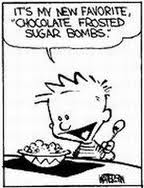
But they have to pass the Less-Trouble-than-Happiness test. It is apparently very, very easy to be enjoying your own Cap’n Crunch one minute but be racked with anxiety and suspicion the next lest your sibling’s bowl contain a couple milligrams more of tasty chemicals than yours. When this happens too many times, certain things stop appearing on the breakfast table at all, even on Fat Tuesday.
---5---
Money is not the root of all evil—money-lust is. But maintaining detachment from lots of money can be much harder than getting by with less. Wealth has a way of usurping more than its rightful share of our limited store of mental energy, time, and attention.
Besides, it seems that when you cross Puritan roots
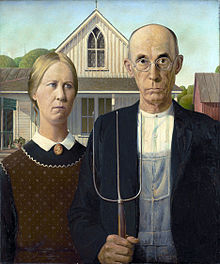
with prosperity, you produce a powerful, anxiety-ridden sense of duty

to be a responsible consumer, perpetually preoccupied with price comparison. At its best, this is part of stewardship. At worst, Consumer Reports replaces the Bible, and getting a good deal becomes the duty that trumps all others. (Thus, you might find yourself out hunting down cheap gizmos when you ought to be sitting down to a family Thanksgiving—more on that in a minute.)
Good stewardship is, of course, a legitimate moral duty, but it gets out of hand. What else could you be doing with the time spent researching deals on a superfluous or toxic product? What exactly will you be doing with all the money you save? These are moral questions, too.
---6---
A funny thing happened this year. Some people, including myself, have been railing against Black Friday for a good long time.
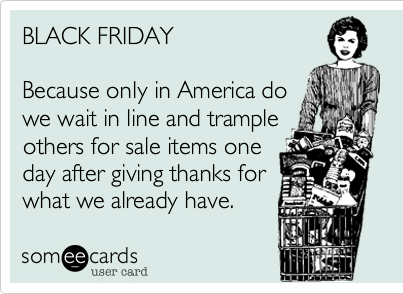
But this year, somebody got carried away and decided to invent Black Thursday, and replace Thanksgiving with it.
This set off an outcry, which was heartening but peculiar. After all, Thanksgiving was downgraded long ago from a religious festival to an afternoon when women gathered in kitchens to share anxieties about gluten-free stuffing and men gathered on sofas to watch football with visiting in-laws with whom it was unsafe to discuss politics and religion.
We cultivate an “attitude of gratitude” because “studies have shown”—and they have—that it’s good for your mental health. But an exercise done to enhance mental health is a step down from the celebration of a sacred feast.

---7---
As we head into the “Holiday Season,” I want to offer more than hackneyed warnings against consumerism and secularism. It’s easy to get caught up in pro- or anti-Bllack Friday activism, or indignation at CEO’s who want to celebrate a certain lucrative birthday without any mention of the birthday Boy.

But then, if we protest that instead of preparing our hearts, we’re missing the point.
In fact, we're missing it just as thoroughly as the guy who spends Thanksgiving Day in the electronics department of Walmart.

Comments (6)
Sapperdepitjes
Nov 24, 2012 6:10pm
Today I saw "Black Friday" signs at the local mall, in English and all, here in Barcelona, Spain, where nobody has ever heard of anything like Thanksgiving...
"Never buy a thing you do not want, because it is cheap, it will be dear to you." (Thomas Jefferson)
By the way, Devra, how or where do you get all these fantastic images for your posts?
Devra Torres
Nov 24, 2012 6:30pm
Sapperdepitjes, that's very sad.
I remember when we first came to Barcelona, all the stores were closed from Saturday night to Monday morning. It took me a while to get accustomed, but it was a good thing. By the tme we left in 2002, more and more were open.
The images are just from Google Images (except the photo of my daughter). I have a lot of fun finding just the right ones.
Katie van Schaijik
Nov 24, 2012 9:29pm
Is there any chance, do you think, that we're reaching the end? I mean that the ugliness and emptiness of it all is beginning to dawn on enough of us that a new era may begin?
It certainly seems to me that the era of blending Christianity with the surrounding culture—so that it's hard to say where one begins and the other ends—is ending fast.
I predict that the differences between the two ways of being are about to become much clearer.
Tim Cronin
Nov 24, 2012 9:43pm
Katie van Schaijik, Nov. 24 at 10:29pm
I predict that the differences between the two ways of being are about to become much clearer.
Agreed, it is easier to see a light shining in the darkness then in the daylight...
Devra Torres
Nov 25, 2012 9:15am
Katie and Tim, I agree--at least, that it's becoming clearer and will become clearer still. We'll all be forced to make a personal choice, and to see whether we're more attached to the ugliness and emptiness than we thought we were.
I think participating in the new evangelization is like raising kids surrounded by toxic culture: you have to reject the evil and locate and acknowledge the grains of truth in it but also present an attractive alternative. I find this is the most demanding part--it's relatively easy to stand up and say no the garbage, but it takes a lot more time and energy to present what's good instead. It's like saying no to Cap'n Crunch--that's easy--but also bothering to make homemade bread instead, so they can see the inferiority of the junk for themselves.
Katie van Schaijik
Nov 25, 2012 9:32am
Devra, the moments when I've been most depressed about myself and my motherhood were usually high holy days in foreign countries, when I felt my absolute dearth of resources for creating culture. I felt I could do absolutely nothing to bring alive the experience for my children. Which, of course, made everything worse.
Ever since, I've wanted desperately to live in community--among friends who know how to make music and do crafts and decorate cakes and deck halls and things like that.
I promise to bring a copious supply of appreciation and gratitude!
Mysteriously, my daughters seem to have abilities in this direction. (I think it might have had something to do with my wanting it so much.) They are both--each in her own way--artistic and craftsy and alert to beauty. At least one of my sons is becoming quite good at the piano. Another recently admitted that he notices the loveliness of birdsong, almost in spite of himself. :) So, there's hope.
Thanks be to God.